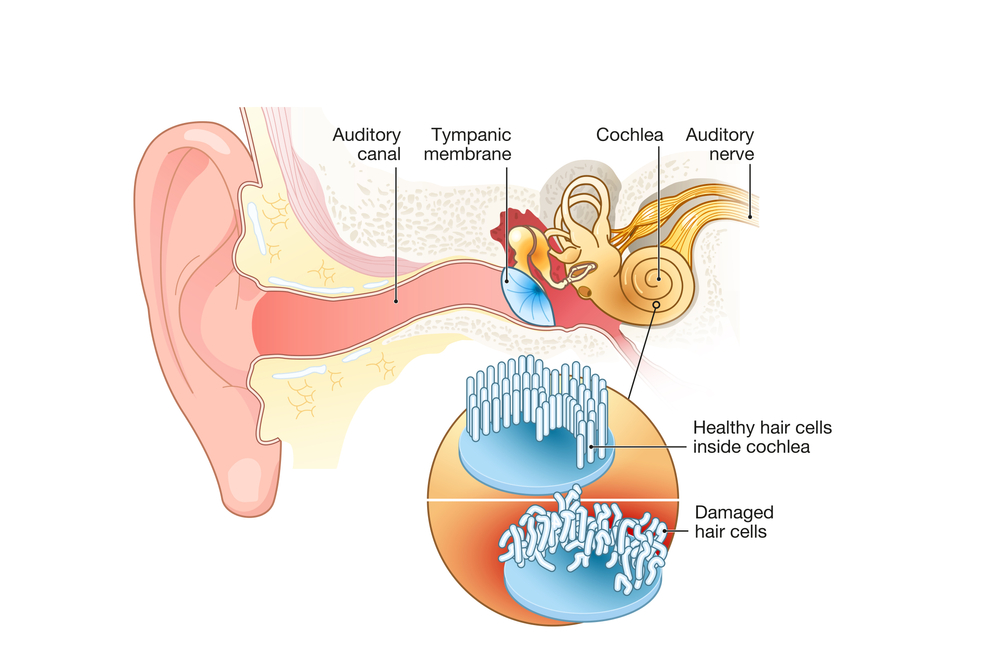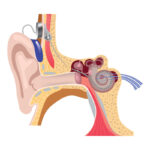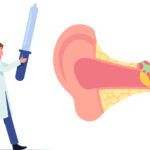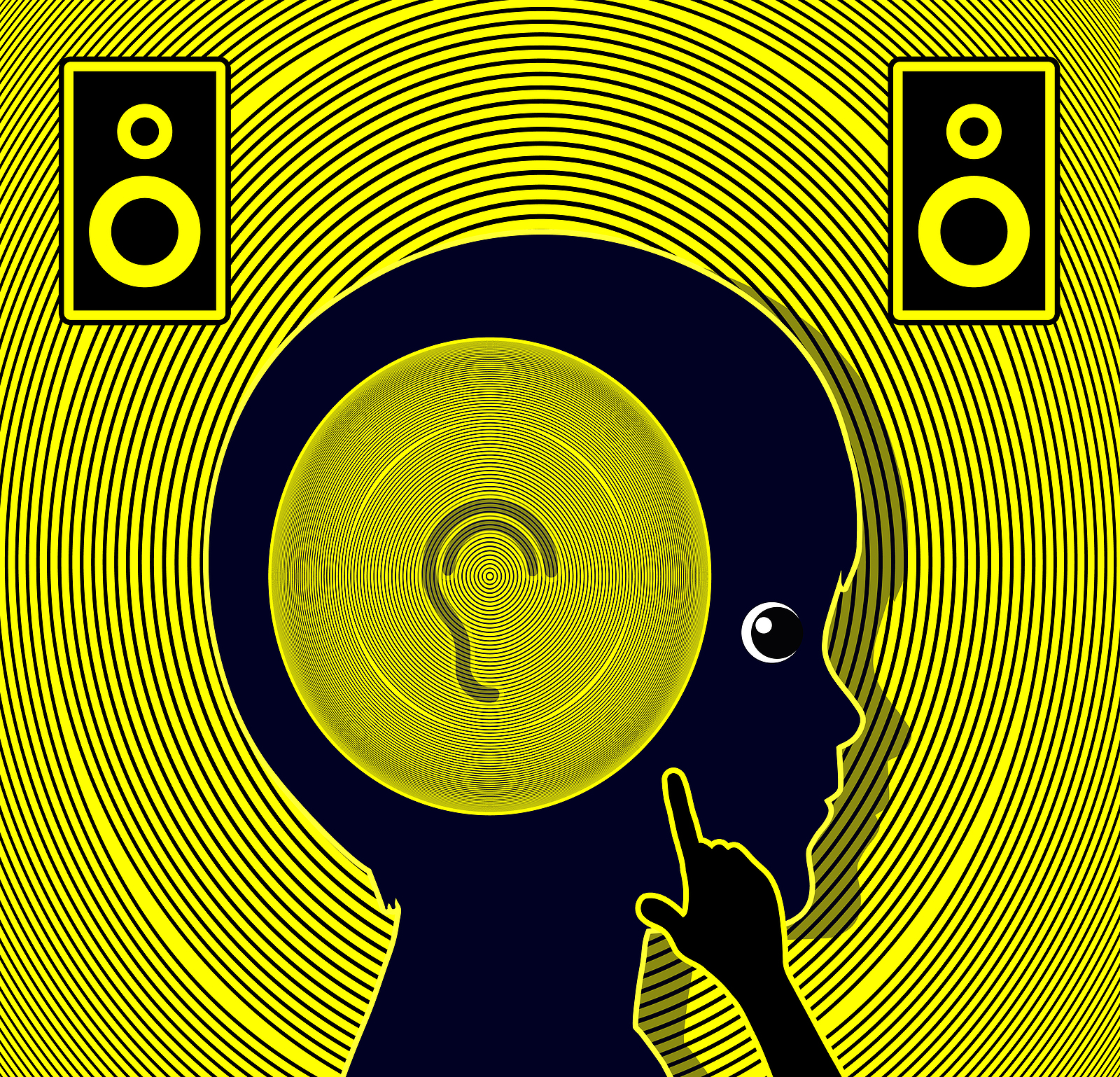High Frequency Hearing Loss: Shedding Light on Its Causes
What causes high frequency hearing loss? Meniere's disease is one of the most common causes of hearing loss at high frequencies, and the loss of the hearing nerve is caused by this disorder. This article discusses other causes of high-frequency hearing loss, including Tinnitus and Cochlea damage. Treatments are available for high-frequency hearing loss and its associated symptoms. This article addresses the causes of high-frequency hearing loss, including a detailed description of treatment options.
Meniere's disease causes high-frequency hearing loss

If you have been told that you have Meniere's disease, you may be wondering how to treat it. While there is currently no cure, doctors can prescribe medication to reduce symptoms. Some people opt to use diuretics, which can decrease fluid in the inner ear. People who suffer from this condition should also limit their salt intake and avoid tobacco products. However, some doctors may suggest surgery if the symptoms are severe and cannot be managed with medications.
The symptoms of the disease vary from one individual to another. They can include extreme dizziness, sweating, and fullness in one ear. You may also experience tinnitus. Meniere's disease causes high-frequency hearing loss and can also cause vertigo and muffling effects. Your symptoms may come and go, so it is important to seek medical attention as soon as you notice them.
While most people experience a high-frequency hearing loss as a result of age, noise and certain medications can also be factors. Meniere's disease is caused by a buildup of fluid in the cochlea, an organ in the inner ear. Normally, the fluid in the cochlea becomes compressed in response to sound vibrations, triggering nerve signals to the brain. However, the build-up of endolymph inside the inner ear interferes with this process, resulting in loss of hearing.
To determine whether you have Meniere's disease, your doctor will examine your medical history and conduct a series of diagnostic tests. An electromyogram, a test that measures the pressure of fluid inside the inner ear, and a computer monitor to evaluate your balance stress may be used to help determine whether Meniere's disease is the cause of your symptoms. The doctor will also perform a CT scan or MRI to rule out other causes of your dizziness.
While Meniere's disease is rare in children, it is most common in middle-aged adults. It can affect men and women of any age. There is no cure for Meniere's disease, but treatment can reduce symptoms and minimize the pain associated with the condition. Some people with the disease experience episodes and don't develop any symptoms between them. Others, however, experience a few episodes over a few days and go months without experiencing any symptoms.
Cochlea damage

A common type of hearing loss is high frequency hearing impairment, which occurs when the hair cells in the cochlea are damaged. These cells contain stereocilia, which are responsible for converting sound vibrations into nerve impulses. Hearing damage can start slowly and may not be detected until 30 to 50 percent of the hair cells are damaged. This type of hearing loss is common among older adults, with almost half of the population having some form of hearing loss.
People with high frequency hearing loss experience a delay in identifying the sounds of their surroundings. This is because their brains cannot correctly process high-frequency sounds. As a result, a person with this type of hearing loss can recognize low-frequency sounds such as the sound of thunder, but not high-frequency sounds such as female voices. High-frequency hearing loss may be caused by a variety of factors, including genetics and age.
Antineoplastic agents, such as carboplatin, can also cause high frequency hearing loss. These treatments are not aimed at the cochlea itself, but rather target the underlying disease, causing high frequency hearing loss. After the inflammation has gone down, the hearing loss will return to normal. If the cause of high-frequency hearing loss is something more serious, treatment may involve surgical intervention.
If you experience a high-frequency hearing loss, you should be evaluated immediately. Symptoms of high frequency hearing loss may include tinnitus, which can be a warning sign of a deeper problem. Early detection of SNHL can lead to aggressive management. The early signs of SNHL may be noticeable to the patient during a hearing test. This is particularly important in cases of tinnitus, as the ear can be damaged without affecting the cochlea.
If high frequency hearing loss is severe, a person may have trouble hearing certain consonants. These sounds are typically spoken at a higher pitch and can seem muffled in a noisy environment. It may appear that the person is hearing, but is not understanding what is being said. This hearing loss may result in difficulty understanding speech and can cause problems with communication and school work. In some cases, a hearing aid may be needed.
Tinnitus
There is no definite cause of high frequency hearing loss and tinnituses, although many people experience them. The causes of tinnitus can range from genetics to environmental factors. There are also musculoskeletal factors that may contribute to the onset of tinnitus. These factors include teeth grinding, neck muscle tension, or previous injuries. Massage therapy can alleviate the symptoms of tinnitus. However, high-pitched tinnitus is typically a sign of a faulty auditory system. Pulsatile tinnitus requires medical evaluation, including a CT or MRI of the head. The frequency of hearing loss was recorded in the left and right ear.
A heart murmur is a condition that is often accompanied by tinnitus. Patients with this condition hear a whooshing sound with each heartbeat, which a clinician can detect with a stethoscope. High-pitched tinnitus is also known as pulsatile tinnitus, and it occurs more frequently in older people. It occurs during the nighttime when external noise is reduced.
The symptoms of chronic tinnitus may vary, and treatment depends on the cause. Cognitive behavioral therapy focuses on retraining a patient's thinking to improve how they react to their tinnitus. Patients are required to maintain a daily diary, take prescribed medications, and avoid loud noises. Typically, treatment is short-term, lasting between two to six months. Treatment may improve tinnitus symptoms, and improve quality of life.
Various studies have examined the relationship between tinnitus and HF hearing loss. One study looked at the relationship between tinnitus and hearing thresholds in patients with and without high-frequency hearing loss. It found that patients with higher HF-hearing levels had higher tinnitus compared to those without the condition. Furthermore, the average tinnitus pitch was higher in the HF group than in the control group.
The aging process and prolonged exposure to loud noise are two common factors that can affect a person's hearing. A middle-ear infection can cause fluid to build up, resulting in temporary hearing loss. A severe middle-ear infection, on the other hand, can result in permanent hearing loss. Other conditions that may lead to high-frequency hearing loss include Meniere's disease, an infection of the inner ear. Another cause is a benign tumour that develops on the auditory nerve.
Treatments
There are several causes of high frequency hearing loss, including genetics, certain medications, and excessive doses of aspirin. In some cases, certain diseases may also cause hearing loss by damaging the inner ear. These conditions include Meniere's disease, otitis media, otosclerosis, and autoimmune inner ear diseases. A doctor can prescribe medications that can help restore hearing or switch the patient to a safer medication. Treatment for high frequency hearing loss usually involves a hearing aid.
Typically, high-frequency hearing loss occurs due to damage to the hair-like cells in the inner ear. These cells translate mechanical sound waves into electrical impulses, which the brain then interprets. High-frequency hearing loss begins in the higher frequencies, which can make understanding fast speech impossible. However, it can develop with age or from exposure to noise. Genetic predisposition to hearing loss may also play a role, as can certain medications.
High-frequency hearing loss affects the ability to hear certain types of sounds, including the lower-pitched consonants. The higher-pitched consonants in speech can make it difficult to hear other sounds, such as the words and phrases spoken by family and friends. Children with high-frequency hearing loss may find it difficult to hear clearly in classrooms and demonstrate problems with their speech. Some people with this condition may be unable to understand conversation in their home, but they can still hear birdsong or listen to music.
While there are treatments available for high-frequency hearing loss, some people are not able to get them. However, some people with this condition are at risk for hearing loss due to genetic predisposition or exposure to loud noises. As the number of people with this condition increases with age, a person may develop high-frequency hearing loss. It can also be the result of exposure to certain types of drugs. For example, chemotherapy drugs and salicylates are ototoxic.
A hearing doctor may recommend treatment for high-frequency hearing loss. A high-frequency loss patient may experience difficulty understanding female or children's voices and treble sounds in music. High-frequency hearing loss can also make it difficult to hear consonants, making it difficult to hear conversations in noisy environments. In some cases, the person may not be able to hear consonant letters at all, making it difficult to understand even ordinary speech.
Conclusion
High-frequency hearing loss can be caused by various factors, including Meniere's disease, cochlea damage, and tinnitus. While there is no cure for Meniere's disease, medications and lifestyle changes can help manage symptoms. Cochlea damage can be caused by age, genetics, and exposure to loud noise or certain medications. Tinnitus has a range of causes, and treatment depends on the underlying condition. There are treatments available for high-frequency hearing loss, including hearing aids, medication, and surgical intervention in severe cases. Early detection and management are crucial for improving outcomes and maintaining quality of life.
Sources:
- Mayo Clinic. (2021). Meniere's disease. https://www.mayoclinic.org/diseases-conditions/menieres-disease/symptoms-causes/syc-20374910
- American Academy of Otolaryngology-Head and Neck Surgery. (2020). Tinnitus. https://www.enthealth.org/conditions/tinnitus/







